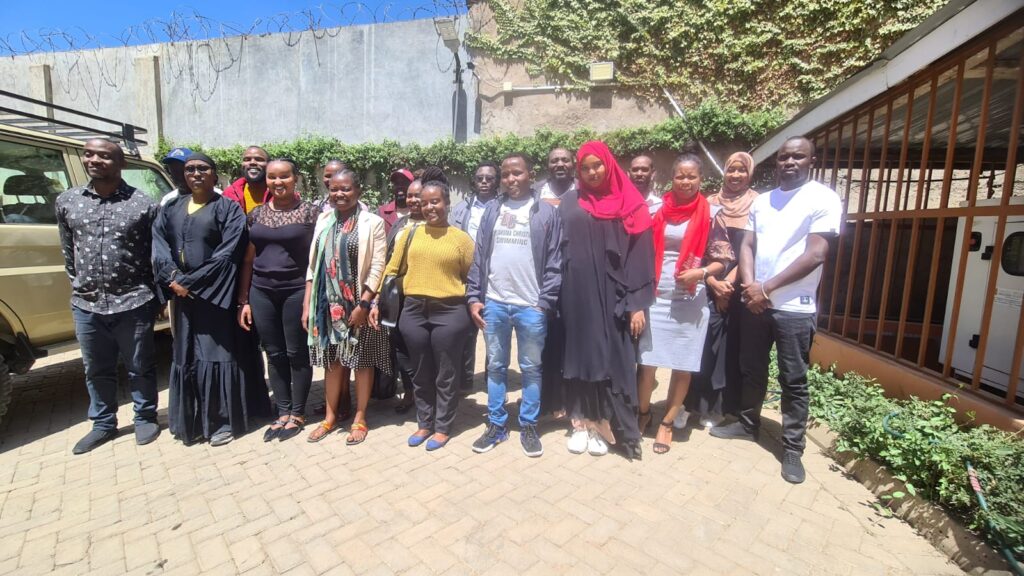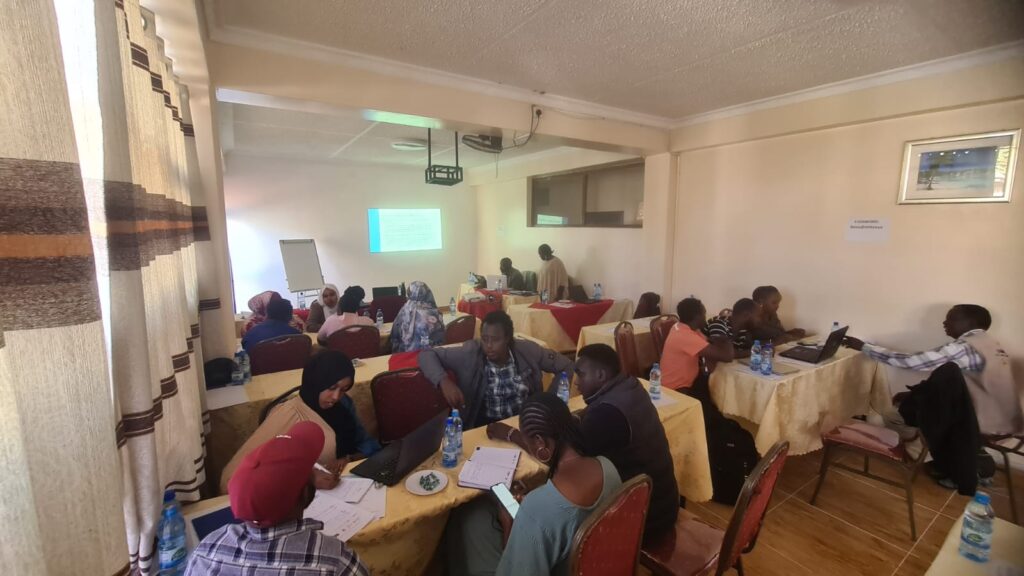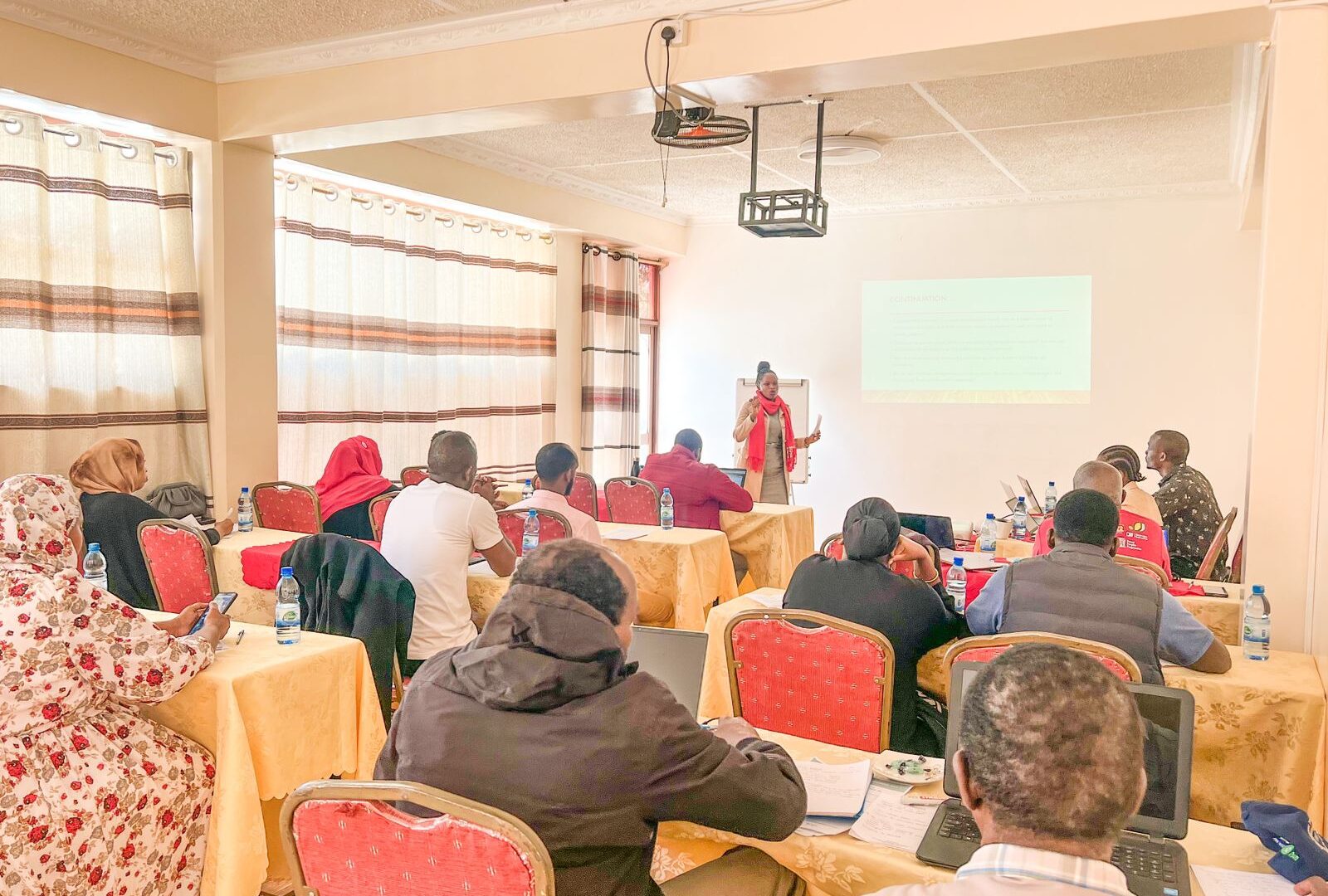Hosted by IMPACT, the workshop was held at Beisa Hotel in Nanyuki, Laikipia County, from 1-3 February 2023
In total, 29 individuals participated, representing 12 pastoralist and civil society organisations working a total of 19 different ethnic communities across the MILS (Marsabit, Isiolo, Laikipia, and Samburu) counties of northern Kenya.
The organisations are also members of the Pastoralists Alliance for Resilience and Adaptation in Northern Rangelands (PARAN) – a social movement uniting pastoralist organizations, including customary institutions, women and youth groups, community-based and non-governmental organizations, as well as other formal and informal networks. PARAN aims to strengthen and promote sustainable pastoralism through advocacy and capacity-building. In light of environmental conflict across northern Kenya, as well as the difficulty external organisations have experienced in facilitating sustainable peace, the work of PARAN is crucial.
This workshop was part of a participatory action research project funded by the United States Institute of Peace, entitled ‘Supporting Grassroots Environmental Peacebuilding in Northern Kenya’. The project seeks to generate insights into the the challenges grassroots organisations face in sustaining, scaling, and linking their peacebuilding movements.
The purpose of this workshop was to pilot two initial short training courses developed based on our research. The topics of the training courses were:
1 Engaging policymakers and influencing policy
Led by John Ole Tingoi, IMPACT Kenya
2 Needs assessment and resource mobilisation
Led by Elizabeth Silakan, IMPACT Kenya


Each short training course included a lecture delivered by an expert in the topic, followed by interactive session where workshop participants could apply knowledge gained (see Box 1). Participants were also given opportunities to share their own experiences and knowledge on each topic and to evaluate each course to identify how their design and delivery might be improved in the final version of the training curriculum.
Box 1: Developing a policy engagement strategy
John Ole Tingoi has extensive knowledge and experience in peacebuilding, as well as in policy advocacy and design for environmental peace. His presentation offered participants insights and step-by-step guidance on how to successfully engage policymakers and influence policy. Tingoi helped participants apply this knowledge by discussing case studies of challenges and successes in influencing policy; including lobbying for 8 years to have Laikipia’s Disaster Risk Management Policy passed by the County Assembly and advocating for minorities to be included in the National Climate Action Plan of 2018 after community-level stakeholders were sidelined from the consultation process.
Following the presentation, participants were asked to put their newfound knowledge to work. In small groups, they were tasked with brainstorming and developing a policy engagement strategy for their respective organisations based on the approaches and strategies from the lecture.
In addition to piloting the training courses, the workshop was also used as an opportunity to validate the final report from key stakeholders and workshops participants – including some of the Environmental Fellows involved in data collection and analysis.
Now that we have finished all the short training courses, our next step involves collating and analysing feedback documented from grassroots environmental peacebuilders across northern Kenya. This feedback will be used to inform a final training curriculum that will be free to access on our website.
The approach of having civil society workers and grassroots peacebuilders pilot our training curriculum aligns with the participatory, action oriented design of our research. There is a dearth of knowledge of how bottom-up approaches to environmental peacebuilding can work to reduce environmental conflict at the sub-state or grassroots level in fragile contexts. Our work responds to the need for knowledge in this area. You can read more about the research here.
We are now also in the process of finalising the research report and other outputs. Stay tuned to our website for more update sin the months ahead.
